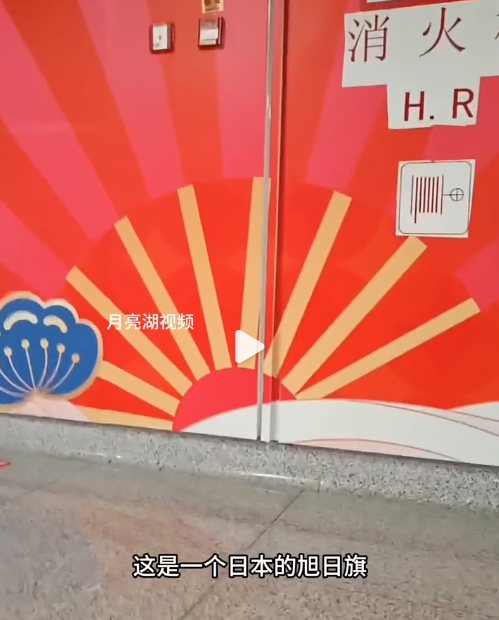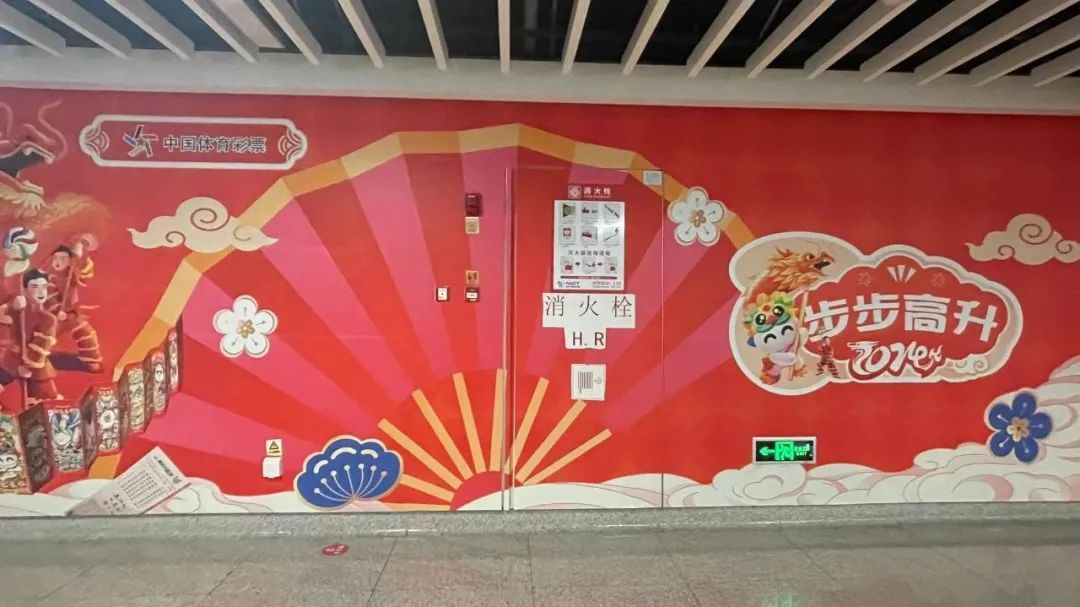Open displays of rejoicing and Schadenfreude on Chinese social media after a destructive magnitude 7.6 earthquake struck western Japan on New Year’s Day have been followed by two new (and far sillier) incidents of xenophobic or anti-Japanese sentiment in China. The most recent is the Nanning Metro “rising sun flag” fiasco. After a nationalist Douyin vlogger complained that a colorful new advertisement on the Nanning metro system resembled the former “rising sun” flag of the Imperial Japanese Army (旭日旗, xùrì qí in Chinese, kyokujitsu-ki in Japanese), Nanning Metro promised to delete the offending artwork as soon as possible and to improve its oversight of future advertising. (The flag is deeply controversial due to its association with Japan’s WWII conquest of East and Southeast Asia.) But a look at the entirety of the advertisement reveals that the image is not a Japanese rising sun at all, but a traditional Chinese folding fan:


An article from WeChat account 小宋威武 (Xiǎo Sòng Wēiwǔ) notes the increase in online trolls attempting to whip up anti-Japanese or anti-foreign sentiment through deliberate misrepresentation (指鹿为马, zhǐlùwéimǎ, which literally means “to point at a deer and call it a horse.”) The author also writes that in recent years, companies, organizations, and even local governments have become more fearful about offending nationalists, and are inclined to apologize and back down first, rather than defend their actions—even in the case of such ridiculous allegations such as this one.
Another incident was an announcement from the Pingyao County Culture and Tourism Bureau that it would be prohibiting “tourist photography” shops in Pingyao’s ancient city center from selling clothing from “non-Han-Chinese” ethnic groups. A furor ensued, and the announcement was withdrawn, with one WeChat blogger suggesting that shutting down the Pingyao tourism bureau might make more sense than shutting down the sale of non-Han clothing and costumery.
Other recent writings on the subject of anti-Japanese sentiment include a WeChat article by Huang Zhijie comparing 2024’s vitriolic reactions to the Japanese Noto Peninsula earthquake with the more compassionate responses of the Chinese government and citizenry a century ago, after Japan’s Great Kanto Earthquake of 1923. A WeChat article from the account 走读新生 (Zǒudú Xīnshēng) bemoans the trend toward labeling Chinese people “traitors” for daring to express sympathy for Japan or the Japanese people. And writing for China Story, Phil Cunningham has some interesting observations on state broadcaster CCTV’s coverage of the recent earthquake in Japan, and the enormous gap between the way CCTV covers earthquakes, floods, and other natural disasters in China and other countries:
“[I]f a China domestic news story cannot be spun in a positive direction, it is unlikely to merit any state TV coverage at all. The normal rules of journalism simply do not apply.
When it comes to foreign coverage, CCTV and other state media sometimes commit something akin to journalism, if only opportunistically, because the best way to buttress a worldview in which China is good and the world is bad is to air well-reported stories about bad things happening around the world.” [Source]







